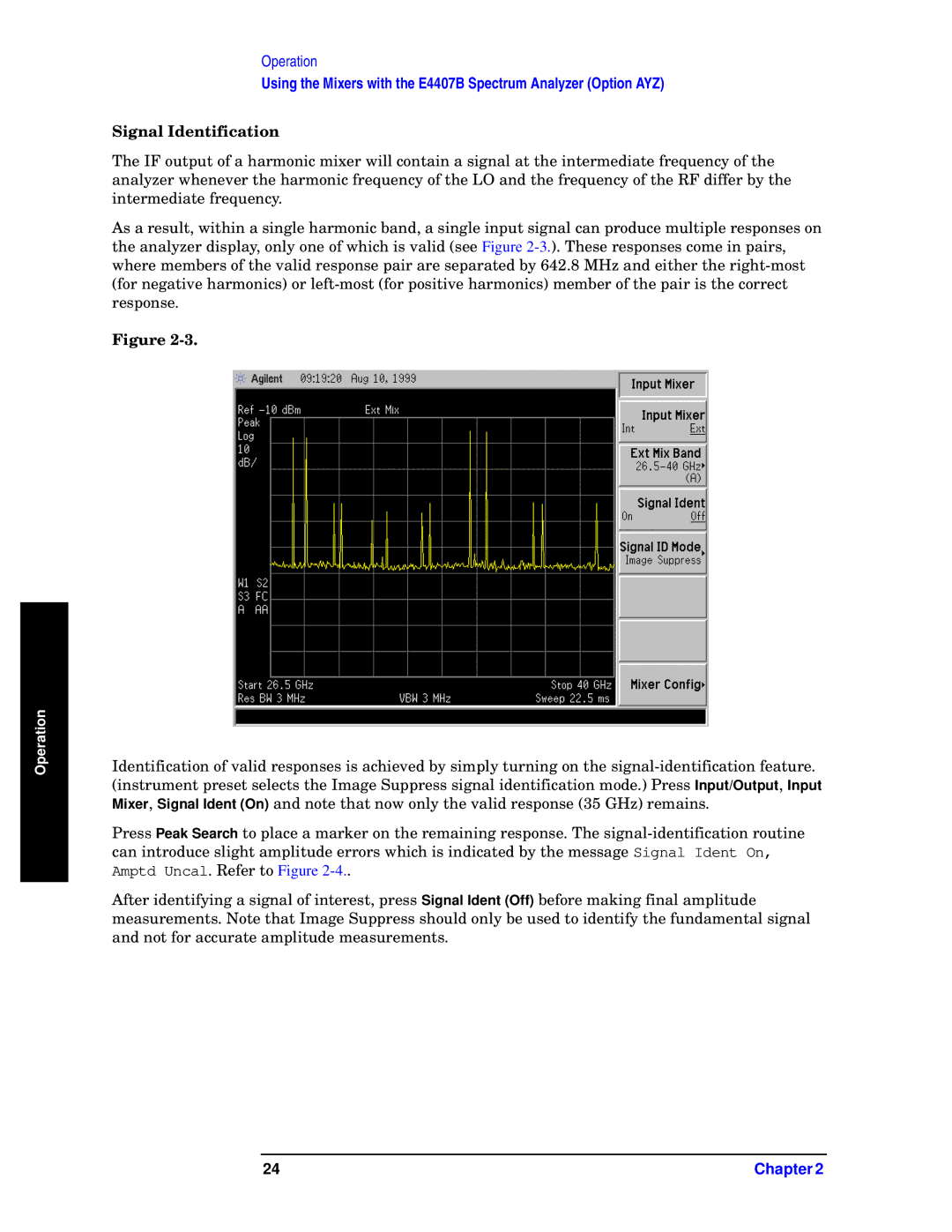
Operation
Operation
Using the Mixers with the E4407B Spectrum Analyzer (Option AYZ)
Signal Identification
The IF output of a harmonic mixer will contain a signal at the intermediate frequency of the analyzer whenever the harmonic frequency of the LO and the frequency of the RF differ by the intermediate frequency.
As a result, within a single harmonic band, a single input signal can produce multiple responses on the analyzer display, only one of which is valid (see Figure
Figure
Identification of valid responses is achieved by simply turning on the
Press Peak Search to place a marker on the remaining response. The
After identifying a signal of interest, press Signal Ident (Off) before making final amplitude measurements. Note that Image Suppress should only be used to identify the fundamental signal and not for accurate amplitude measurements.
24 | Chapter 2 |
